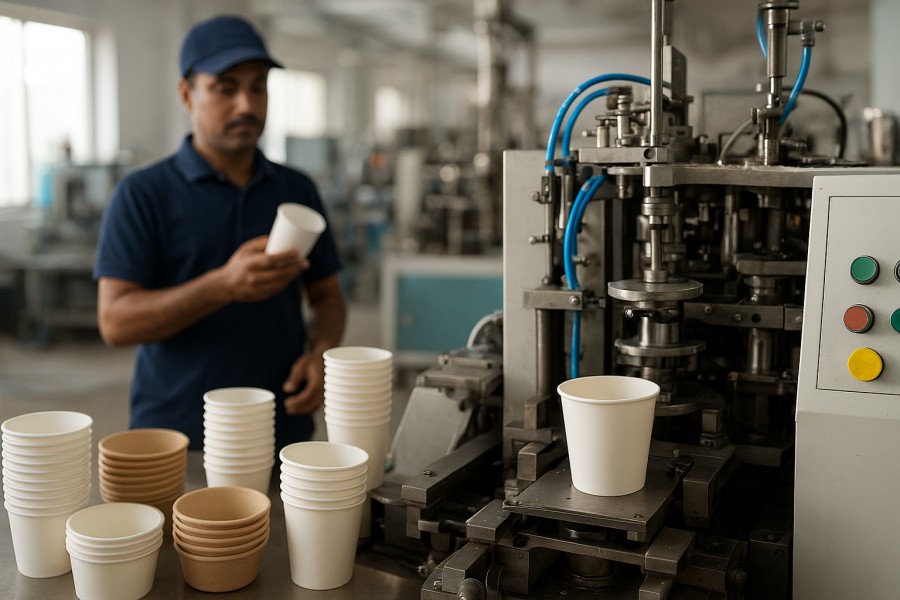Installing a fence is one of the most effective ways to add security, privacy, and visual charm to your property. But with so many materials available, choosing the right one can feel overwhelming. Whether you want a classic wood fence, a low-maintenance vinyl option, or a durable chain-link enclosure, selecting the proper material is crucial for both aesthetics and function.
Professional fence company work with a variety of fencing materials and know which ones perform best in different environments and for different purposes. In this blog, we’ll cover the top 7 fencing materials most frequently recommended by fencing experts, helping you make a well-informed decision for your home or business.
Why Fencing Material Selection Matters
The material you choose impacts your fence’s durability, maintenance needs, appearance, and cost. Factors like climate, purpose, property style, and budget should guide your selection process. Consulting with a reliable fence company ensures you select a material that suits your property’s specific needs.
Top 7 Fencing Materials Recommended by Professionals
1. Wood Fencing
Wood remains a timeless and versatile choice for residential properties. A favorite among many fence companies, it offers natural beauty and various style options, from picket fences to tall privacy panels.
Pros:
-
Affordable upfront cost
-
Wide range of designs and finishes
-
Can be painted or stained to match your style
-
Eco-friendly and renewable
Cons:
-
Requires regular maintenance (painting, sealing)
-
Susceptible to rot, insects, and weather damage without upkeep
Wood is an excellent option for homeowners seeking privacy and classic curb appeal.
2. Vinyl Fencing
Vinyl fencing, or PVC fencing, is a popular low-maintenance option. Many fence companies recommend vinyl for its durability and sleek appearance, especially in modern neighborhoods.
Pros:
-
Virtually maintenance-free
-
Resistant to rot, insects, and weather
-
Available in various colors and styles
-
Easy to clean
Cons:
-
Higher initial investment compared to wood
-
Can crack under extreme cold
Vinyl fencing is ideal for those who want a long-lasting, clean look without frequent upkeep.
3. Chain-Link Fencing
Chain-link fences are known for affordability and functionality, making them a go-to recommendation from any fence company for commercial properties, schools, and large yards.
Pros:
-
Cost-effective and easy to install
-
Durable and weather-resistant
-
Requires little maintenance
-
Provides security while preserving visibility
Cons:
-
Limited privacy without add-ons (like slats or fabric screens)
-
Industrial appearance may not suit all homes
Chain-link fencing is perfect for securing pets, play areas, and commercial spaces.
4. Aluminum Fencing
Aluminum fences offer the elegant appearance of wrought iron without the maintenance hassles. Many fence companies recommend it for upscale properties seeking decorative, rust-resistant enclosures.
Pros:
-
Lightweight and corrosion-resistant
-
Low maintenance
-
Customizable designs and finishes
-
Great for decorative and pool enclosures
Cons:
-
Less sturdy than steel for high-security needs
-
Higher upfront cost than chain-link
Aluminum is excellent for enhancing curb appeal while offering reliable, weather-proof fencing.
5. Wrought Iron Fencing
Wrought iron delivers unmatched strength and classic elegance. A preferred material for historic and luxury homes, many fence companies offer wrought iron options for secure, ornamental boundaries.
Pros:
-
Extremely durable and long-lasting
-
Timeless, ornate appearance
-
Customizable designs
-
Adds property value
Cons:
-
Requires periodic painting and rust prevention
-
Higher cost for materials and labor
Wrought iron fencing works well for decorative purposes and high-security installations.
6. Composite Fencing
Composite fences blend wood fibers with recycled plastics, providing a durable, eco-friendly option that mimics the appearance of wood. Increasingly popular with modern fence companies, composite fencing offers the best of both worlds.
Pros:
-
Low maintenance with no painting or staining
-
Resistant to rot, insects, and fading
-
Available in various natural-looking finishes
-
Environmentally friendly
Cons:
-
Higher upfront cost
-
Limited color flexibility after production
Composite fencing is an excellent choice for homeowners who love the look of wood without the maintenance.
7. Bamboo Fencing
Eco-conscious property owners often turn to bamboo fencing for its sustainability and natural beauty. Many fence companies offer bamboo options for privacy and garden accents.
Pros:
-
Fast-growing, renewable material
-
Unique, natural appearance
-
Suitable for decorative or privacy screens
-
Lightweight and easy to install
Cons:
-
May weather quickly without sealing
-
Not as durable in wet or cold climates
Bamboo works well for decorative fences, garden enclosures, and tropical-inspired landscapes.
How to Choose the Right Fencing Material
When selecting a fence, consider these factors:
-
Purpose: Security, privacy, or aesthetics?
-
Budget: What’s your material and installation budget?
-
Climate: Will the fence withstand local weather conditions?
-
Maintenance: How much upkeep are you willing to commit to?
-
Design Preference: Modern, rustic, industrial, or traditional look?
A professional fence company can help you evaluate these variables and recommend the most suitable material for your property.
Frequently Asked Questions (FAQs)
Q: What is the most affordable fencing material?
A: Chain-link fencing is typically the most budget-friendly option, followed by wood. It offers durability and security at a lower cost than other materials.
Q: Which fencing material lasts the longest?
A: Wrought iron and aluminum fences are among the most durable, often lasting decades with proper maintenance. Composite and vinyl also offer excellent longevity with minimal upkeep.
Q: Is wood fencing high maintenance?
A: Wood fencing requires regular painting, staining, or sealing to prevent rot, insect damage, and weather wear.
Q: Can a fence company customize fence designs?
A: Yes, most fence companies offer customizable options in materials, heights, finishes, and decorative features to suit your preferences.
Q: Is composite fencing environmentally friendly?
A: Yes, composite fencing uses recycled plastics and wood fibers, making it an eco-friendly, low-maintenance alternative to traditional wood.
Conclusion
Selecting the right fencing material is essential for ensuring your fence’s durability, functionality, and aesthetic appeal. By understanding the pros and cons of each option, you can make a confident, informed decision that aligns with your property’s needs and style.
A professional fence company can help you navigate these choices, offering expert advice, quality materials, and precise installation to guarantee a beautiful, long-lasting fence that enhances your outdoor space.



